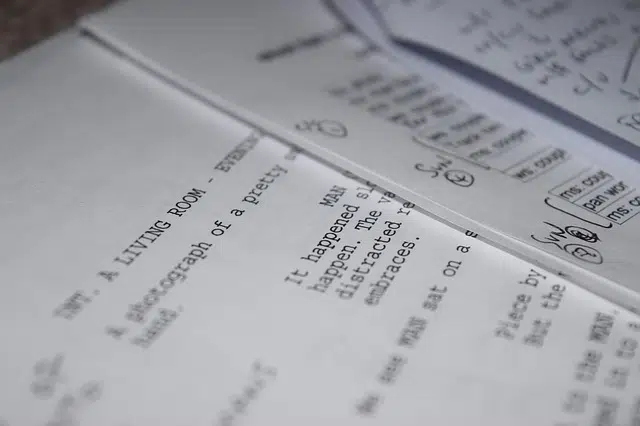
In a theatrical script, the dialogues are detailed and the development of each scene is explained.
Script is a concept with various uses and meanings according to the context. In the field of theater , the script is the script that presents all the contents necessary for the development of a work .
The theatrical script , therefore, is a text that specifies the dialogues that each actor must say, details the development of each scene, provides information about the scenery, etc. For example: “I have to study two theater scripts for next week, since we will be making new presentations,” “The writer confessed that he dreams of writing theater scripts, although he claims to have no talent in that field,” “The Uruguayan playwright surprised with a highly intense theatrical script.”
The notion of a theatrical script can be applied to various genres . A drama , an opera or a musical has scripts that adapt to their particularities and that include the necessary information for each case.
Theatrical script and staging
The theatrical script, in short, includes the contents required to stage a specific staging . The fundamental ideas of the work appear in order, so the script has an introduction, a development and an outcome.
The objective is that everyone involved in the play, from the director to the actors , including the set designer , the lighting designer and the costume designer , knows how the actions will develop and what will happen in each scene .
It could be said that dialogue is the fundamental element of the script, since it indicates what the characters should say. The script, in any case, also informs about the scenery and includes the author's notes (when the characters enter and leave, what their attitudes should be, etc.). If the dialogue does not seem natural, if the audience does not find it credible or coherent with the universe of the work, then it is likely that the magical connection so necessary for the drama to come to life and reach people will not be established.

For the development of a work, the theatrical script is key.
Historical origins
Although when talking about theater we usually refer to Greece and its invaluable legacy, there is evidence that in Ancient Egypt, around 1,500 years before the Christian era, dramatic representations that dealt with the death and resurrection of Osiris, the god of resurrection and the figure that symbolizes the fertility and regeneration of the Nile River. It is worth mentioning that the Egyptians used masks for their performances.
The origin of this discovery was an incomplete manuscript that has been partially translated and contains what could correspond to a simplified version of a current theater script. In it you can see dialogues that give voice to divine characters and it is estimated that the performances took place on dates of religious importance for the Egyptians, which keeps the theater linked to the concept of ritual.
Beyond the theatrical script
Theatre, unlike other genres, such as novels and poetry, requires the work of several people to come to life. It is true that a person can enjoy reading a theatrical script in privacy, without the need for an acting performance, but it cannot be denied that this is not the intention of this art, but that it has much greater ambitions . In other words, brilliant writing is not enough, but it must be complemented by the work of set designers, directors , lighting artists, makeup artists and actors, among other members.
Unfortunately, poor performance and bad direction can significantly interfere with the audience's perception of a work; As if this were not enough, in the case of dramas by writers who have died, the prestige of a theatrical script often depends on the hands in which it ends up, something that cannot happen with the aforementioned genres.
